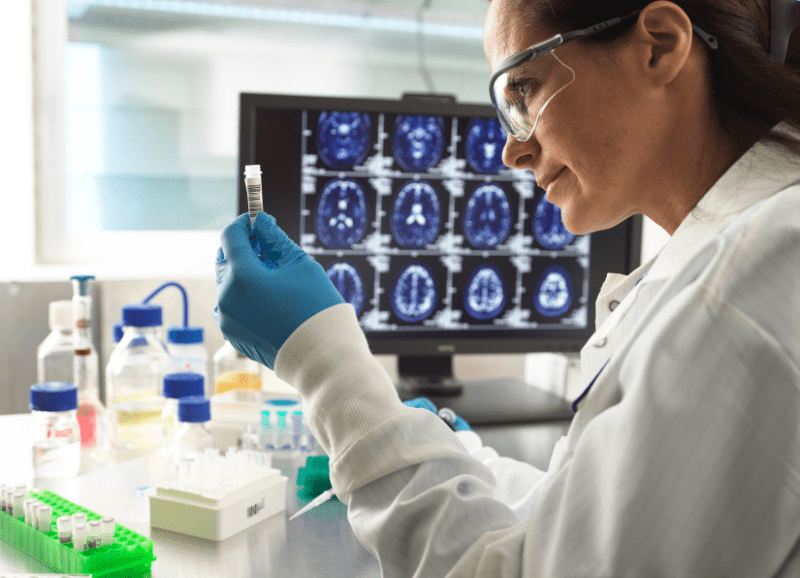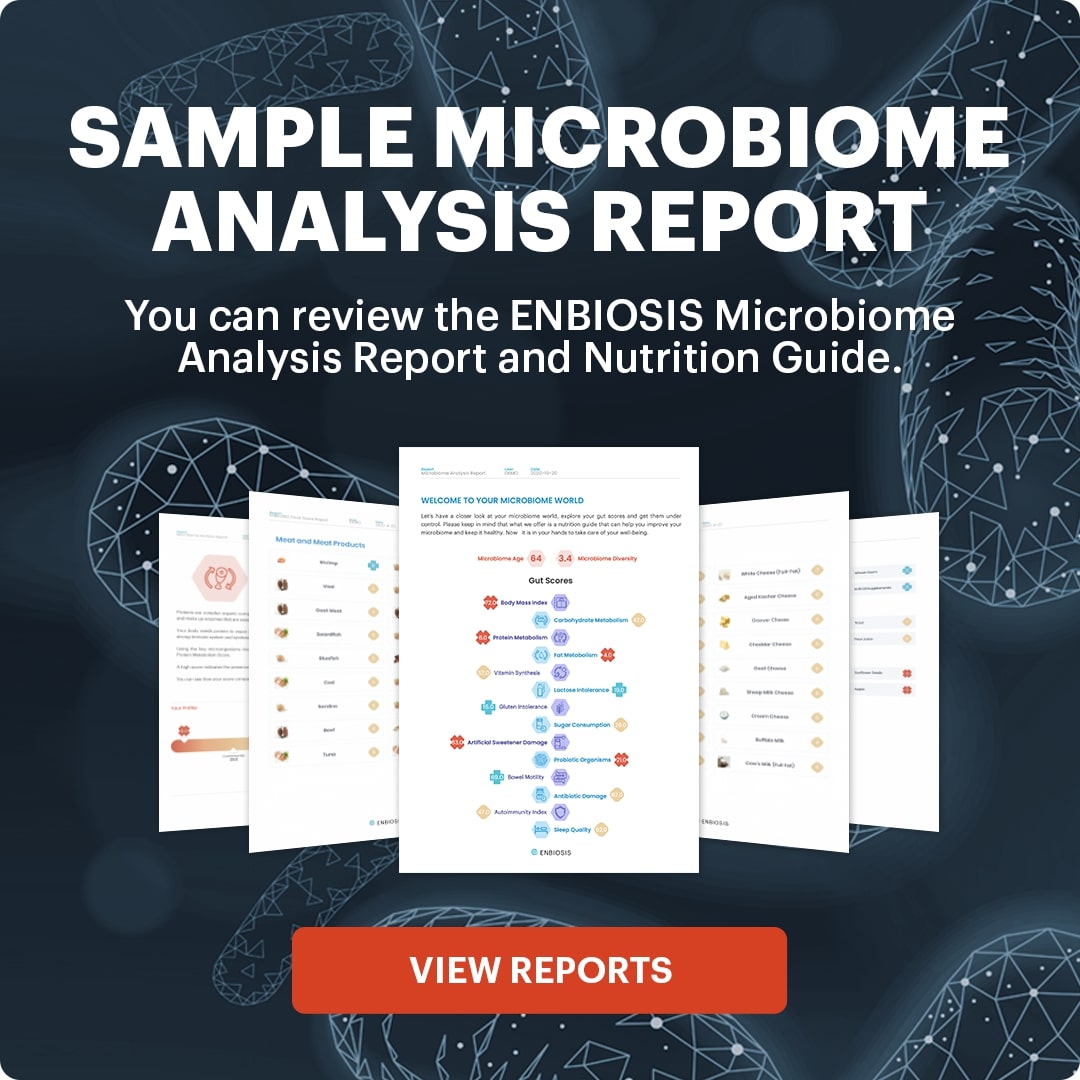Most of us know how important having a healthy gut is for our physical well-being. However, emerging research also suggests a surprising connection between our gut and brain health. In fact, the trillions of microorganisms inhabiting our digestive tract may influence not only our mood and mental health but also our susceptibility to developing neurodegenerative conditions, such as Alzheimer’s disease. Join us as we examine the latest scientific findings on the link between our gut microbiome and Alzheimer’s disease, and discuss how prioritizing your gut health may help to reduce your disease risk.

Table of Contents
What Role Does Our Gut Microbiota Play in Alzheimer’s Disease?
The relationship between our gut flora and the development and progression of Alzheimer’s disease is an area of growing interest. Cross-talk between our gut and brain happens primarily as a result of interactions between gut-derived metabolites and neurotransmitters, such as serotonin, dopamine, and gamma-aminobutyric acid (GABA). These molecules act like chemical messengers, sending information between our gut microbiome and central nervous system and influencing various physiological and neurological processes.
Understanding more about the specific mechanisms by which our gut microbiome influences neurodegenerative processes will hopefully enable the development of novel disease prevention and management strategies down the line.
Recent Findings Linking Our Gut Microbiome to Alzheimer’s Disease

Let’s take a look at some of the recent findings in this area:
Gut Dysbiosis as an Early Alzheimer’s Sign
Recent research has identified significant differences in the gut microbiome of people in the early stages of Alzheimer’s disease compared with healthy individuals. These findings indicate that alterations in the gut microbiome may not simply be a consequence of Alzheimer’s disease but could potentially serve as an early warning sign, even before the onset of noticeable cognitive decline. Specifically, researchers reported that individuals in the preclinical stages of Alzheimer’s had a higher abundance of bacteria associated with the breakdown of arginine and ornithine, two amino acids involved in protein synthesis. In contrast, healthy individuals displayed a greater abundance of bacteria involved in glutamate degradation, which may help to protect neurons from damage.
These discoveries open up exciting possibilities for using gut microbiome analysis as an early indicator of Alzheimer’s disease risk.
Gut Microbiome and Progression of Alzheimer’s Disease
The gut microbiome’s influence extends beyond the early stages of Alzheimer’s, potentially contributing to progression of the disease as well. Indeed, an exciting study published recently demonstrates that transplanting human gut microbiota from an Alzheimer’s patient into a healthy young adult rat led to the development of Alzheimer’s-like symptoms in the recipients. This compelling evidence highlights the direct influence of gut microbes on neurodegeneration and reinforces the need to explore the gut-brain connection further.
Our gut microbes may contribute to neurodegeneration and cognitive decline associated with Alzheimer’s disease through various mechanisms, including:
Chronic Inflammation and Impaired Gut Barrier
Chronic inflammation is a hallmark of Alzheimer’s disease, and the gut microbiome plays a significant role in regulating immune responses and inflammatory processes throughout the body. An imbalanced gut microbiome can trigger a cascade of inflammation which can spread to the brain, contributing to neuronal damage, amyloid plaque formation, and the progression of cognitive decline.
Dysbiosis within the gut microbiome may also lead to impairment in the gut barrier, commonly known as a “leaky gut.” This compromised gut lining allows harmful substances to leak into the bloodstream, potentially reaching the brain and exacerbating neuroinflammation, a key driver of Alzheimer’s progression.
Neurotransmitter Production
The gut microbiome plays an integral role in producing and regulating neurotransmitters, which are essential for cognitive function and mood regulation. Imbalances in these neurotransmitters, often influenced by gut dysbiosis, have been linked to the cognitive impairment and behavioral changes commonly observed in Alzheimer’s patients.
Amyloid Beta Accumulation
Emerging research indicates that gut microbes may not only directly influence the production and aggregation of amyloid beta (the protein that forms plaques in the brains of Alzheimer’s patients) but may also contribute to this process through the production of amyloid-like proteins.
Metabolic Dysfunction
Gut dysbiosis can also disrupt metabolic pathways in the brain, leading to impaired energy production, oxidative stress, and mitochondrial dysfunction. These metabolic disturbances can further damage neurons and contribute to the progression of Alzheimer’s.
Can Diet Influence Your Risk of Alzheimer’s?

Given the mounting evidence linking gut health to Alzheimer’s disease, you may be left wondering whether our dietary choices could influence our risk of developing this devastating neurodegenerative condition. Emerging research suggests that the answer may be a resounding yes.
Studies have shown promising results with the adoption of Mediterranean and ketogenic diets, both of which emphasize whole foods, healthy fats, and limited processed foods. These diets promote a diverse and balanced gut microbiome, which may have protective effects against neurodegeneration. Additionally, prebiotic and probiotic supplements have shown potential in modulating the gut microbiome and modifying the progression of Alzheimer’s disease.
Alzheimer’s Disease: Where Does Gut Microbiome Testing Come In?
The emerging link between our gut and brain health, especially in the context of Alzheimer’s disease, is pushing gut microbiome testing into the spotlight. Gut microbiome analysis offers a window into the intricate world of our gut bacteria, shedding light on potential imbalances that could raise the risk of neurodegenerative conditions.
At Enbiosis, we provide an AI-powered gut microbiome testing service that utilizes powerful NGS-based analysis to determine the composition of your gut microbiome. By identifying particular microbiome patterns, we can create personalized nutrition and probiotic recommendations designed to enhance your overall health and potentially reduce your risk of certain neurological conditions.
Contact Enbiosis today to learn more.

